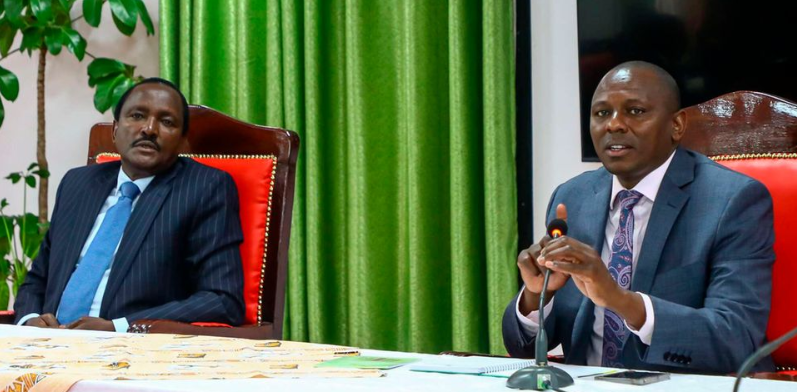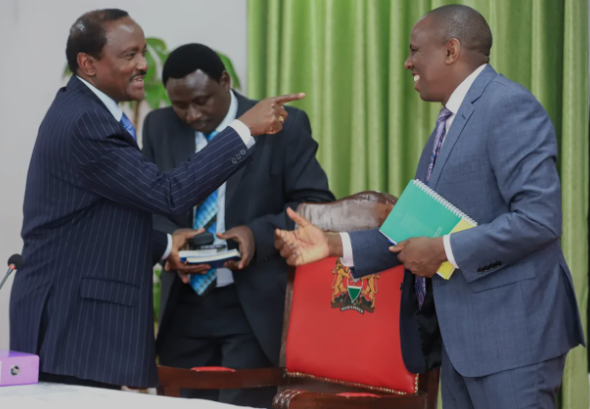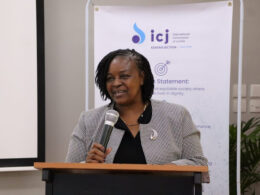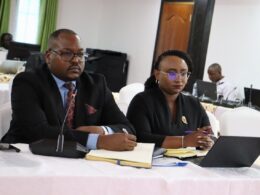The underlying motivations of these talks often revolve around the distribution of resources, control over government institutions, and the advancement of personal and party agendas.
By Thuku Mburu
Political bipartisan talks have become a prominent feature of Kenya’s political landscape, showcasing a complex interplay of interests, ideologies, and power dynamics. This article aims to dissect the phenomenon of political bipartisan talks, unraveling their significance in the context of the Kenyan political elite’s quest for power and influence.
As political actors from different parties engage in behind-the-scenes negotiations, often with the aim of consolidating power and advancing personal interests, the democratic process and the aspirations of the general populace remain at the crossroads.
Throughout Kenyan history, the last four Presidents have engaged in pivotal bipartisan dialogues to ensure the seamless and effective functioning of the government. Moi’s era saw the establishment of the “cooperation Government”, a term coined to denote the collaborative approach to governance.
Kibaki’s tenure introduced the “coalition” Government, popularly known as the “nusu mkate” government, reflecting a shared power arrangement. Subsequently, the “handshake” Government emerged under Uhuru’s leadership, emphasizing the importance of unity and collaboration.
Presently, President William Ruto is advocating for bipartisan talks, aiming to uphold the spirit of cooperation for the betterment of the nation’s governance. This historical pattern highlights the significance of cross-party discussions in steering Kenya’s political landscape towards stability and progress.
At the heart of political bipartisan talks in Kenya lies an intense power struggle among the political elite. These talks serve as a battleground where parties and their leaders negotiate, strategize, and forge alliances to secure their own interests. The underlying motivations often revolve around the distribution of resources, control over government institutions, and the advancement of personal and party agendas.
Not long ago, Kenya experienced the Building Bridges Initiative (BBI), a significant endeavor aiming to introduce substantial amendments to the Kenyan constitution. This process engaged a wide spectrum of Kenyan citizens, leading to legal challenges as different segments of the population questioned its legality. Alongside this, various groups embarked on public awareness campaigns to expound the contents of the proposed document, prompting diverse responses within the populace, ranging from agreement to dissent.
Ultimately, the legal battle ended in court, resulting in the stalling and, to a certain extent, the dissolution of the BBI – the Kenyan judiciary upheld the arguments presented by various stakeholders, attesting to the concerns raised about the legality of the process.
Today, a similar situation presents itself anew. The political elite, representing different factions, have forged an agreement on specific matters, which include but not limited to: cost of living, audit of 2022 presidential elections results, restructuring and reconstitution of the Independent Electoral and Boundaries Commission (IEBC) and related matters, measures to prevent interference with political parties, outstanding constitutional matters; governance issues, effective checks and balances, the question of boundaries delimitation. Some of these issues carry profound implications for ordinary citizens. The resolution of these matters, should the two factions reach consensus, could lead to amendments in the Kenyan Constitution.
History seems to be repeating itself as political leaders tread a familiar path. These discussions appear to be constructed not upon legal foundations, but rather on mutual agreements between the two opposing sides.











